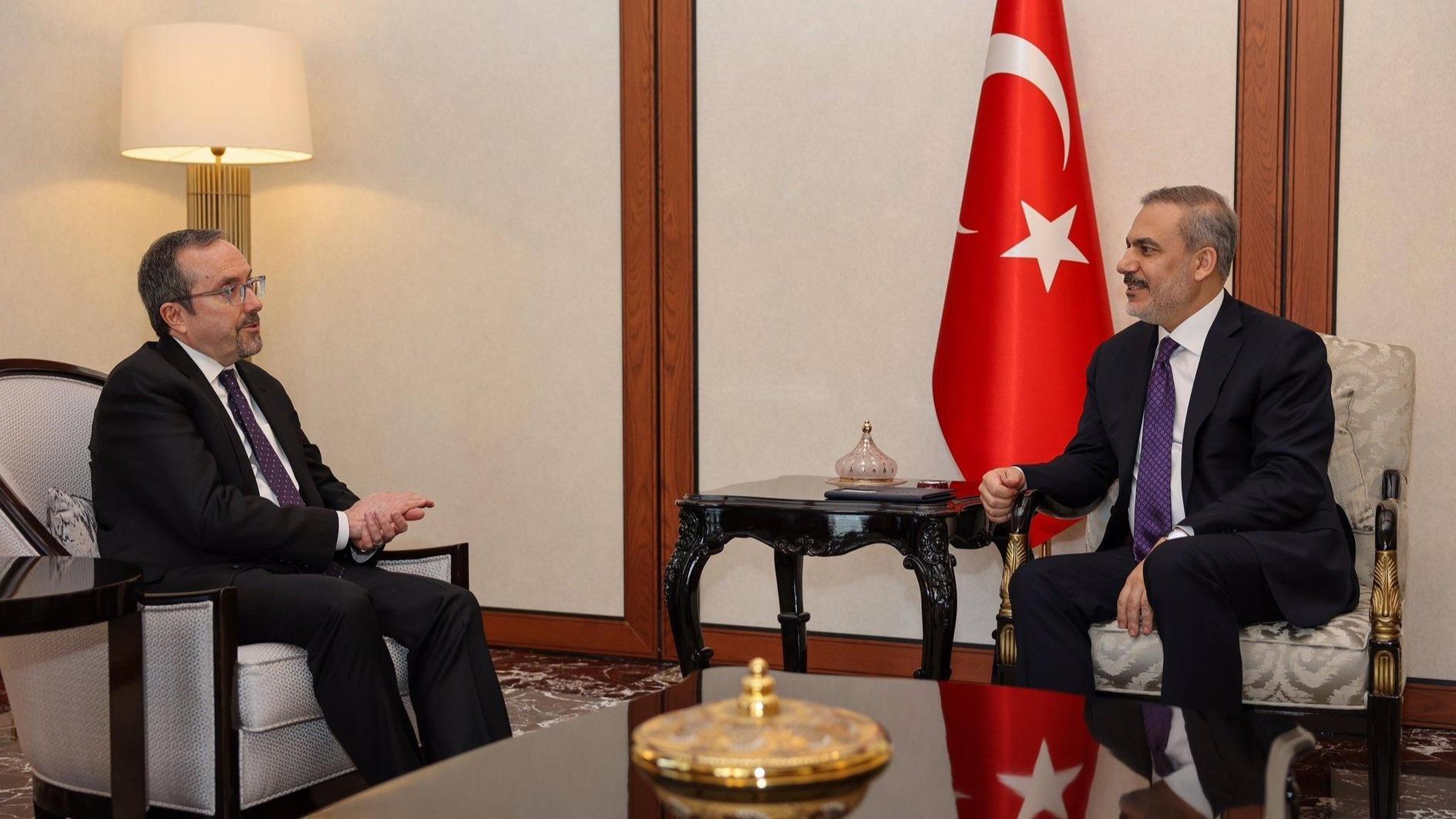Turkish president’s office ‘closely following’ case after Dündar and Gül’s release
Gizem Karakış - ANKARA

Can Dündar, the editor-in-chief of Cumhuriyet, clenches his fist as he leaves a prison car the outside the Silivri prison near Istanbul, after their release early Friday, Feb. 26, 2016. AP Photo
The Turkish president’s office has noted that the release of daily Cumhuriyet editor-in-chief Can Dündar and Ankara bureau chief Erdem Gül does not mark the end of the judicial process, adding that it is “closely following” the case.“This ruling is not an acquittal. It is a decision for pre-trial release. The case is continuing,” President Recep Tayyip Erdoğan’s aide and spokesperson İbrahim Kalın told reporters at a press conference on Feb. 26, hours after Dündar and Gül were released after 92 days behind bars, following the Feb. 25 ruling by the Constitutional Court that their rights had been violated.
Kalın also recalled the cases elsewhere against whistleblowers such as WikiLeaks founder Julian Assange, Edward Snowden and Chelsea (born Bradley) Manning.
“We want to underline that cases of espionage and leak of information have been held in other parts of the world too. When the Wikileaks incident took place, we saw in Britain and in America what kinds of measures were taken. Julian Assange has been living in Ecuador’s Embassy in London for around three-and-a-half years. Likewise, Bradley Manning is now in jail and was sentenced to 35 years in prison. We also know that Edward Snowden is hiding somewhere in Russia, but we also know that Snowden will be taken to court and given a heavy penalty,” he said.
“When Western countries take measures in similar cases, these measures are defined as part of the fight against terrorism within the framework of the rule of law, or measures taken for the state’s security. Distortion of the same practice in Turkey cannot be accepted. In cases involving state security, the legal process should continue. The [Dündar and Gül] case will continue and of course we will closely follow it,” Kalın said.
Manning, a U.S. Army intelligence analyst who handed over 700,000 classified documents to WikiLeaks in 2010, revealed details about military operations in Iraq, Afghanistan, and the Guantanamo Bay detention camp. He was convicted in 2013 and sentenced to 35 years in prison - longer than most actual spies under the Espionage Act - for the leaks.
In 2013, Snowden, a former National Security contractor from the United States, leaked hundreds of top secret documents of the government’s eavesdropping program. Soon after, he fled the country eventually seeking refuge in Russia.
Dündar and Gül are accused of espionage, threatening state security, and supporting an armed terrorist organization over two stories published in Cumhuriyet about National Intelligence Agency (MİT) trucks allegedly filled with weapons and bound for Syria. The two were arrested by an Istanbul court on Nov. 26 last year, triggering reactions from press organizations, NGOs, and many Western states.
Footage released by daily Cumhuriyet on May 29, 2015, showed gendarmerie and police officers opening crates on the back of trucks that contained what the daily reported as weapons and ammunition to be sent to Syria by MİT in January 2014.
Claiming that the trucks were carrying “humanitarian aid to Turkmens” in the war-torn country, the Turkish government accused followers of U.S.-based Muslim preacher Fethullah Gülen in the judiciary and security institutions of illegally ordering the search.
“By stopping MİT trucks and checking what was inside, they announced it to the world through espionage. What did they say then? They said, ‘These [trucks] are providing weapons for a terrorist organization.’ They exposed the humanitarian assistance that was sent to Bayırbucak Turkmens in this way. They exposed what was sent to the Free Syrian Army [FSA] in this way,” President Erdoğan said on Nov. 28.
Erdoğan and the MİT are the plaintiffs in the case. Erdoğan filed a personal criminal complaint against Dündar and the daily on June 2, 2015, claiming that the story “included some footage and information that are not factual” while saying the person “who wrote the story will pay a heavy price.”
















